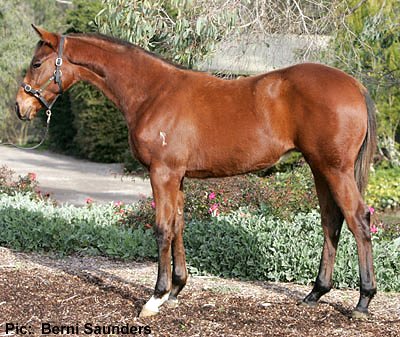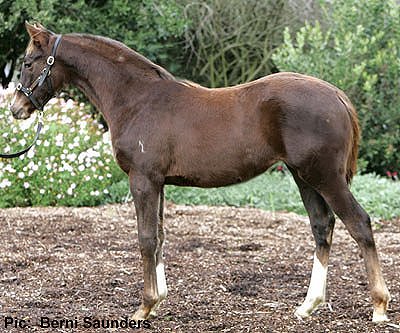Feeding the Weanling
by Dr Nerida Richards
Feeding the Weanling
Weanling stage is a critical stage in the growth and development of a horse and nutrition plays a pivotal role. Weanling nutrition influences the horse’s final size and perhaps more importantly play a large role in determining the horse’s long term structural soundness.
As for all horses, a weanlings energy, protein, mineral and vitamin requirements must be met. This article discusses each of these dietary components in some detail and 3 potential diets for weanlings in different circumstances are given.
Energy
The amount of energy (or calories) you provide in your weanlings diet is what is going to determine how quickly the weanling grows and how much body condition it is carrying. Growth rate and body condition in weanlings are, in my opinion, the two most important parameters to manage. If you allow your weanling to grow too quickly or carry too much body condition you will put it at increased risk of bone and joint diseases. If the weanling grows too slowly you will potentially end up with a stunted horse that doesn’t reach its genetic potential.
Managing the amount of dietary energy your weanlings eats allows you to manage how quickly your weanling is growing and how much body condition it carries. The table below gives you a guide to how much weight a weanling should gain per day (please note these growth rates are for a horse expected to mature at 550 kg).
| Age | Estimated Growth Rate |
| 5 months | 0.8 kg/day |
| 6 months | 0.7 kg/day |
| 7 months | 0.65 kg/day |
| 8 months | 0.6 kg/day |
| 9 months | 0.55 kg/day |
| 10 months | 0.5 kg/day |
| 11 months | 0.45 kg/day |
Maintaining weanling growth rates around these levels will reduce the risk of developmental orthopaedic diseases and ensure your weanling is not being stunted.

A weanlings body condition should be maintained between 4.5 and 5.5 (on the Henneke System of condition scoring that uses a scale of 1 to 9) and should never be allowed to exceed a condition score of 6.
If your weanling is growing slower than you would like, the amount of feed (and therefore dietary energy) you are feeding needs to be increased. If your weanling is growing too quickly or is too heavy in condition, the amount of feed (and therefore dietary energy) must be reduced. Growth rates and condition scores are the two parameters that will determine HOW MUCH you feed your weanling.
Protein
Because a weanling is growing and developing, protein and protein quality are critical in ensuring you are providing all the right building blocks for growth and muscle and bone development. Not providing enough protein, or providing poor quality protein will result in a stunted weanling with poor muscle development. Low protein diets can also contribute to weanlings becoming fat (as they don’t have the building blocks to grow, so instead they lay down all their excess dietary energy as body fat).
Soybean is the best source of protein for growing horses as it contains high concentrations of the essential amino acids needed for muscle and bone development. Canola meal, lupins and faba beans are also good sources of protein. Cottonseed meal should be avoided.
Minerals
Minerals play a MAJOR role in determining the future structural soundness of your weanlings. Failure to meet your weanling’s mineral requirements, and particularly calcium, phosphorous, copper, zinc, manganese and sodium means your weanling won’t have the necessary nutrients to build sound bone and cartilage. Deficiencies of other minerals like iodine and selenium can also limit growth rates and contribute to muscle disease.
I am yet to analyse a pasture or hay sample in Australia that contains a concentration of minerals high enough to meet a weanlings requirements, meaning a weanling should ALWAYS be supplemented with minerals at the very least. Minerals can be supplemented in the form of a complete feed, where the minerals are mixed in with a sweetfeed or pellet or can be fed as a low dose rate mineral supplement. Weanlings should also always have access to a salt lick.
Vitamins
Vitamins are essential for all horses and weanlings are no exception. Failure to meet vitamin requirements can slow growth rates, affect feed intake and predispose the weanling to infectious diseases. Weanlings grazing green pasture and supplemented with a good quality vitamin and mineral supplement will generally have their vitamin requirements met. If you are feeding weanlings under drought conditions, particular attention must be paid to their vitamin intake.
Example Diets
The following diets are examples of BALANCED diets using the Pryde’s feed range that may be used for weanlings 6 months of age weighing 250 kg and growing at 0.8 kg per day (which are parameters typical of a thoroughbred weanling).
Diet 1 – Weanling growing too quickly or carrying too much body condition
0.8 kg/day Pryde’s 200 Pellet
2 cups/day Pryde’s Protein Pak
Free Choice Pasture or Hay* and salt lick
Diet 2 – Weanling growing at the desired rate and in good body condition
1 kg/day Pryde’s EasiFeed ONE Concentrate
1 kg/day Pryde’s BioMare Cubes
Free Choice Pasture or Hay* and salt lick
Diet 3 – Weanling growing slower than the desired rate (needs a push along)
1.5 kg/day Pryde’s EasiFeed ONE Concentrate
1 - 2 kg/day Pryde’s BioMare Cubes
Free Choice Pasture or Hay* and salt lick
* If the pasture or hay is poor quality, feeding 2 kg/day of lucerne hay will lift the overall quality of the forage.
There are a thousand and one ways that you can feed a weanling correctly, these are just 3 example diets. The important point is that whatever the diet you choose to feed, it must be balanced, providing enough energy, protein, vitamins and minerals to meet your specific weanling’s requirements.

If you are not sure what to feed your weanling(s) Pryde’s Pty Ltd would be happy to suggest a diet for you and your specific situation. If you go to the Pryde’s website, use the Interactive Diet Sheet to request a diet.
For more information go to Dr Nerida Richards web site
Go to more articles on Feeding and Nutrition
Dr Nerida Richards Media Release